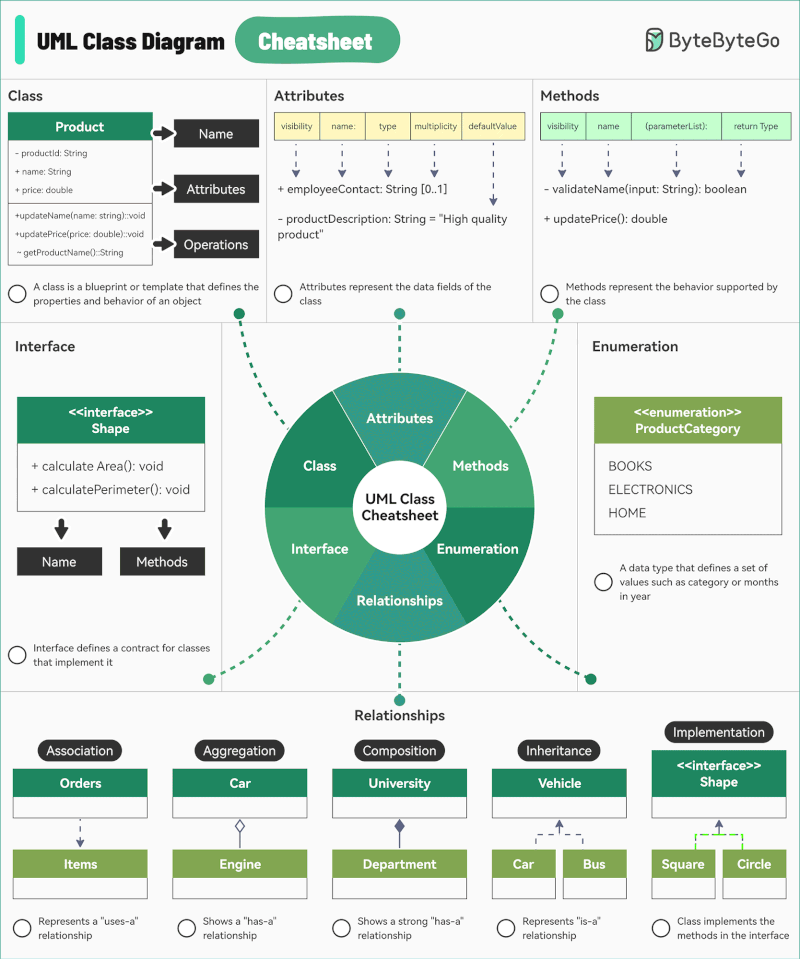
UML is a standard way to visualize the design of your system and class diagrams are used across the industry.
They consist of:
1 - Class Acts as the blueprint that defines the properties and behavior of an object.
2 - Attributes Attributes in a UML class diagram represent the data fields of the class.
3 - Methods Methods in a UML class diagram represent the behavior that a class can perform.
4 - Interfaces Defines a contract for classes that implement it. Includes a set of methods that the implementing classes must provide.
5 - Enumeration A special data type that defines a set of named values such as product category or months in a year.
6 - Relationships Determines how one class is related to another. Some common relationships are as follows: - Association - Aggregation - Composition - Inheritance - Implementation
Over to you: What other building blocks have you seen in UML class diagrams?